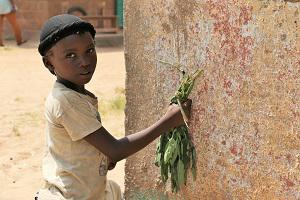
At least 16 people have died in the first cholera outbreak in the Central African Republic (CAR) since 2011. The outbreak was declared by the national authorities on 10 August. 66 cases, including at least seven children, are recorded along the Oubangui River.
“Young children, especially those under five years of age, are particularly vulnerable to this deadly disease”, said Mohammed Malick Fall, UNICEF Representative in CAR. “We need to act quickly to ensure this easily preventable disease is not taking more lives.”
Cholera is an acute diarrhoeal disease caused by ingestion of food or water that has been contaminated with the bacterium Vibrio cholera, which is found in faecal matter.
The outbreak started in Djoukou, in Kemo district, a hard-to-reach area located approximately 100 kilometers up the river from the capital Bangui. Communities in this area have little or no access to clean water and use the Oubangui river as their primary source of water. Some of those areas are very difficult, if not impossible, to access by road. Affected people travelling in overcrowded boats have carried the bacteria downstream
In collaboration with the Ministry of Health and partners, UNICEF is providing medicine, clean water, water purification tablets and hygiene kits to the affected communities.
In addition, community mobilizers in the affected areas are educating the public on prevention measures such as drinking only safe water, washing hands with soap, eating cooked food and avoiding open defecation. Community mobilisation is key to prevent the spread of the disease since most of the affected villages have no access to electricity or telephone network.
Source: UNICEF
 FR
FR EN
EN AR
AR








